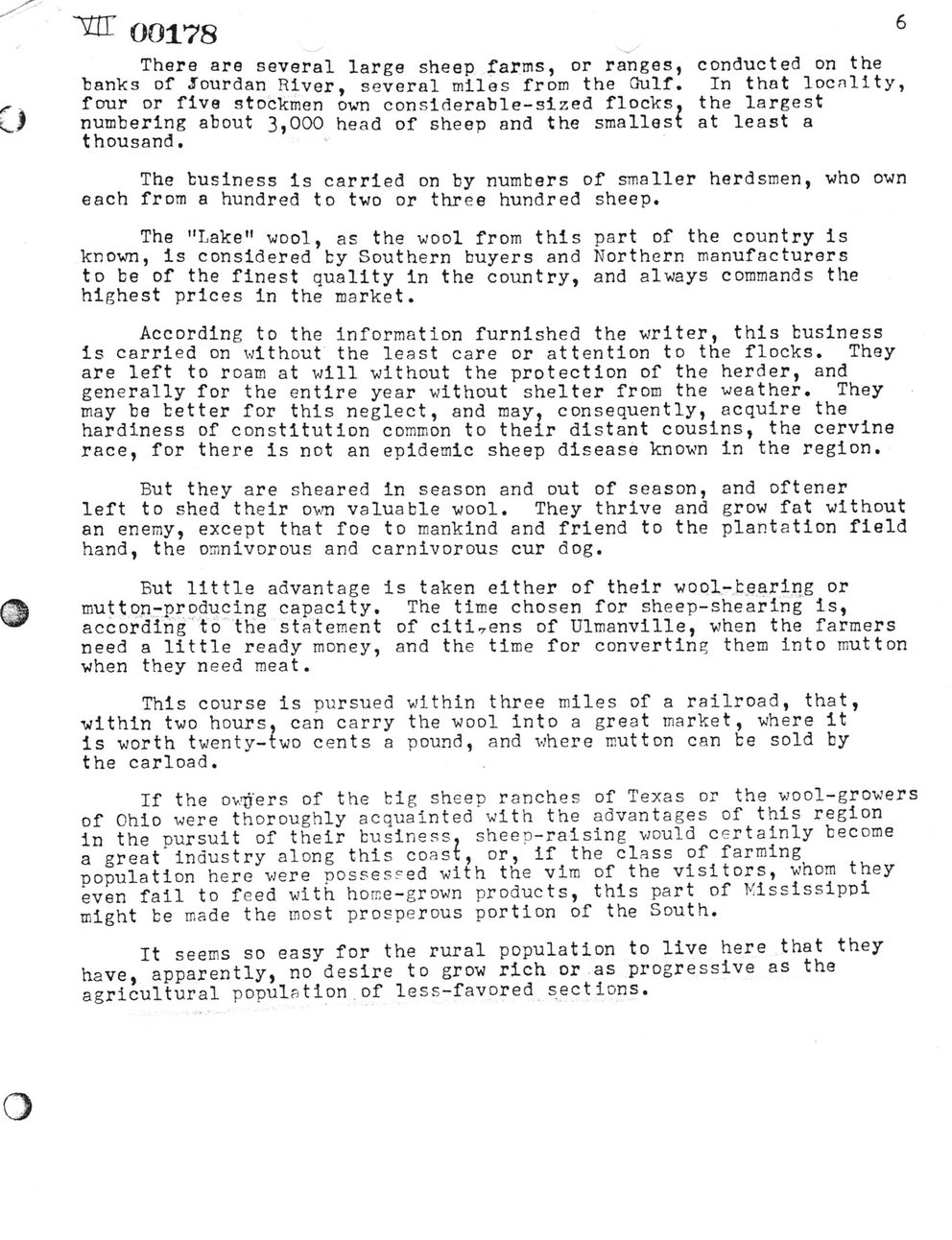This text was obtained via automated optical character recognition.
It has not been edited and may therefore contain several errors.
^ 00178 6 There are several large sheep farms, or ranges, conducted on the banks Df Jourdan River, several miles from the Gulf. In that locality, four or five stockmen own considerable-sized flocks, the largest numbering about 3*000 head of sheep and the smallest at least a thousand. The business is carried on by numbers of smaller herdsmen, vho own each from a hundred to tvo or three hundred sheep. The "Lake" wool, as the wool from this part of the country is known, is considered by Southern buyers and Northern manufacturers to be of the finest quality in the country, and always commands the highest prices in the market. According to the information furnished the writer, this business is carried on without the least care or attention to the flocks. They are left to roam at will without the protection of the herder, and generally for the entire year without shelter from the weather. They may be better for this neglect, and may, consequently, acquire the hardiness of constitution common to their distant cousins, the cervine race, for there is not an epidemic sheep disease known in the region. But they are sheared in season and out of season, and oftener left to shed their own valuable wool. They thrive and grow fat without an enemy, except that foe to mankind and friend to the plantation field hand, the omnivorous and carnivorous cur dog. But little advantage is taken either of their wool-bearing or mutton-producing capacity. The time chosen for sheep-shearing is, according to the statement of citizens of Ulmanville, when the farmers need a little ready money, and the time for converting them into mutton when they need meat. This course is pursued within three miles of a railroad, that, within two hours, can carry the wool into a great market, where it is worth twenty-two cents a pound, and where mutton can be sold by the carload. If the owners of the big sheep ranches of Texas or the wool-growers of Ohio were thoroughly acquainted with the advantages of this region in the pursuit of their business, sheep-raising would certainly become a great industry along this coast, or, if the class of farming population here were possessed with the vim of the visitors, whom they even fail to feed with home-grown products, this part of Kississippi might be made the most prosperous portion of the South. It seems so easy for the rural population to live here that they have, apparently, no desire to grow rich or as progressive as the agricultural population of less-favored sections.

BSL 1880 To 1899 Sheep-Raising-P6